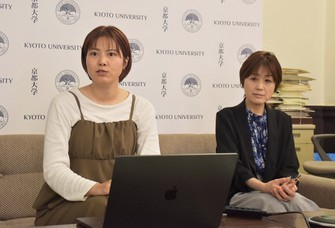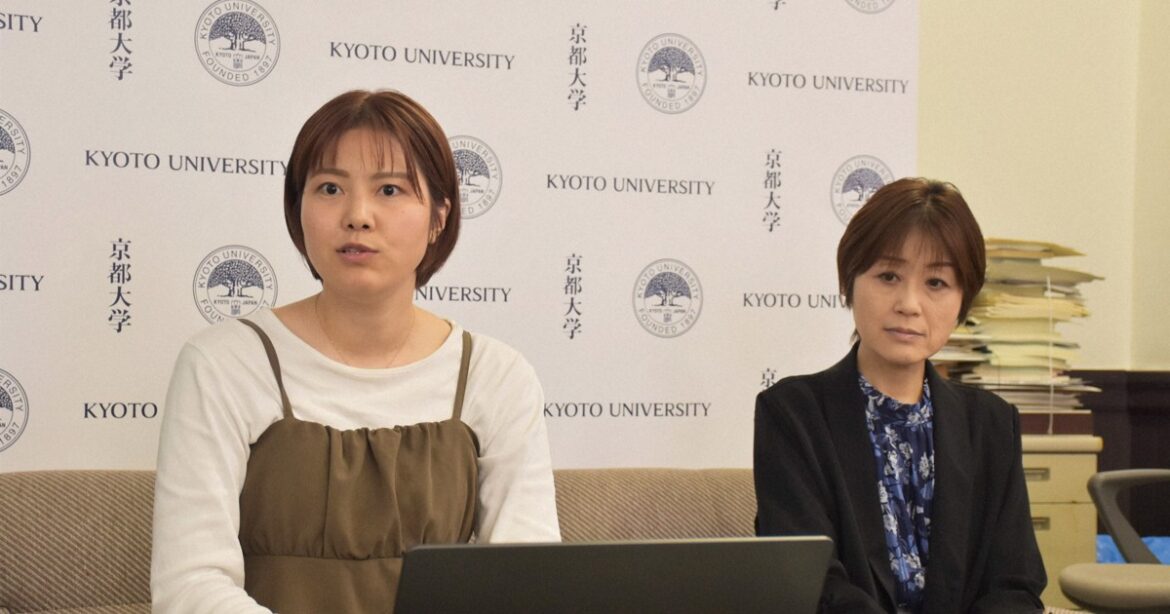
Kyoto University’s program-specific junior associate professor Michiko Matsunaga, left, and professor Masako Myowa explain the relationship between postpartum depression symptoms and the state of gut microbiota in Kyoto’s Sakyo Ward, June 13, 2025. (Mainichi/Sonoko Nakamura)
KYOTO — A research team from Kyoto University has announced findings that link symptoms of postpartum depression to the state of gut microbiota and dietary habits. The study suggests that, along with a balanced diet, consuming certain foods may be effective to improve the stomach environment of women who have given birth and to protect their bodies and minds.
Since the onset of the COVID-19 pandemic, the risk of postpartum women developing depression has increased. It is said that about 30% of women experience symptoms, which can appear up to five years after child birth.
Previous research has shown that the types and amounts of microbiota in the large intestines of depression patients differ from those of healthy individuals. However, studies specifically targeting postpartum women are scarce, and efforts are underway to identify biomarkers for early detection of depressive symptoms.
The research team conducted a study involving 344 postpartum women with children up to 4 years old, who had no mental or physical illnesses. They quantified the severity of depressive symptoms, finding that 48 women were at high risk.
The team then analyzed how the state of microbiota in the large intestine was related to depressive symptoms. They found that individuals with a greater variety and quantity of gut bacteria had milder symptoms. In particular, the presence of “Lachnospira,” which is involved in the production of butyric acid, a compound that improves gut health, was associated with weaker depressive symptoms.
Additionally, an analysis of dietary patterns revealed that individuals who consumed more soy products and fermented foods such as yogurt, as well as seaweed, mushrooms and fruits, exhibited milder depressive symptoms and had higher levels of Lachnospira compared to those who consumed less of these foods.
Professor Masako Myowa of Kyoto University’s Graduate School of Education, specializing in neuroscience, speculates, “Even consciously consuming foods like tofu and yogurt may reduce the risk of postpartum depression for many women.”
The team plans to further investigate the causal relationship between postpartum depression symptoms and the state of gut microbiota and dietary habits of postpartum women. They aim to develop support methods that can lead to early detection and prevention of depressive symptoms.
The research findings were published in the online edition of the American scientific journal PNAS Nexus on Sept. 2.
(Japanese original by Sonoko Nakamura, Osaka Lifestyle, Science & Environment News Department)


AloJapan.com